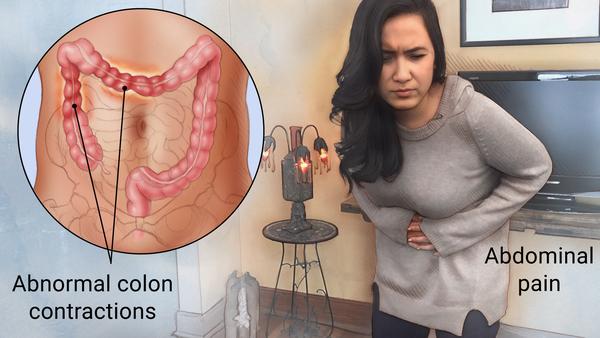Irritable Bowel Syndrome (IBS)

What is Irritable Bowel Syndrome (IBS) ?
Irritable bowel syndrome (IBS) is a common, chronic bowel disorder in which there is abdominal pain associated with change in consistency and frequency of stool. There are three different patterns of this disorders namely IBS-C (Constipation predominant), IBS-D (Diarrhoea predominant) and IBS-M (Constipation + Diarrhoea). The same patient can have different patterns at different times. You may also experience abdominal bloating, mucus in the stool and the sensation of incomplete emptying after defection. IBS is a chronic condition, although there may be times when the signs and symptoms are worse and times when they improve or even disappear completely. Similar symptoms can also occur in other serious bowel disease especially if there is presence of blood in stool, weight loss, fever, loss of appetite and if the symptoms occur for the first time after the age of 50 years. If any of these are present then you must consult your doctor immediately. IBS is a multifactorial disorder where there is interplay of intestinal hypersensitivity, psychological stress and gut bacteria. This leads to abnormal intestinal movements and associated symptoms.
IBS triggers vary from person to person
- Hormones - Researchers believe that hormonal changes play a role in this condition. Many women find that signs and symptoms are worse during or around their menstrual periods.
- Foods - Chocolate, spices, fats, fruits, beans cabbage, cauliflower, broccoli, milk
- Other illnesses - Sometimes another illness, such as an acute episode of infectious diarrhoea (gastroenteritis) or too many bacteria in the intestine (bacterial overgrowth), can trigger IBS.
- Stress - Most people with IBS find that their signs and symptoms are worse more frequent during periods of increased stress.
Stimuli that don't bother other people can trigger symptoms in people with IBS but not all people with the condition created to the same stimuli. Common triggers include:
Lifestyle modification
- Stop smoking and tobacco use.
- Drink adequate amount of water.
- Avoid excessive alcohol consumption.
- Avoid excessive coffee/caffeine and chewing gum.
- Use relaxation techniques: deep breathing, meditation, Yoga.
- Make sure you eat regular and controlled meals as advised by your doctor/dietitian.
- Exercise regularly: Exercise helps relieve depression and stress, stimulates normal constructions of your intestines.
Foods to choose (low FODMAP diet)
Following foods reduces symptoms and improves quality of life.
- Fruits - Banana, muskmelon, grapes, kiwi, lemon, Orange, pineapple.
- Vegetables - Carrot, cabbage, broccoli, cucumber, green beans.
- cereals and grains - Biscuits, cereals, noodles, gluten free breads.
- Meat, fish and poultry - Chicken, lamb, pork, eggs and fish.
- Milk alternatives - Lactose free milk and its products, rice or coconut.
- Beverages - Water, fruit or vegetable juices, tea or coffee.
- Exercise regularly: Exercise helps relieve depression and stress, stimulates normal constructions of your intestines.
Foods to avoid (High FODMAP diet)
Following foods reduces symptoms and improves quality of life.
- Fruits - Apples, Apricot, blackberries, canned fruit, dates, dried fruits.
- Vegetables - Garlic, onion, cauliflower, peas, mushrooms .
- cereals and grains - Barley, bran, muesli, rye, semolina, wheat.
- High lactose diary - Milk, butter milk, cream, ice cream, cheese, custard.
- Beverages - Cold drinks, coconut water, sodas, fennel tea, herbal tea.
